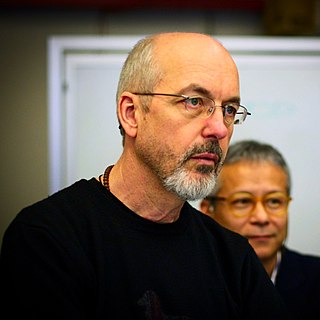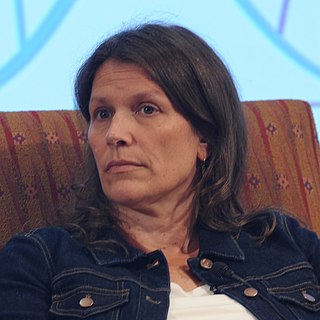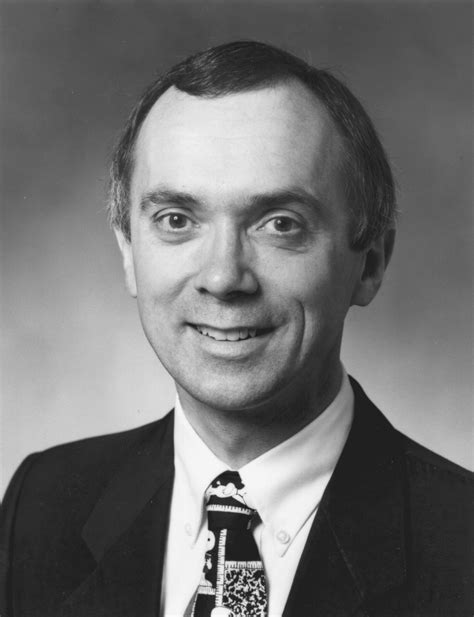A Quote by Alice Gardner
Living an awakened life [...] is just a matter of where our attention is being placed. It is possible for our human-beingness and our true nature or presence to exist wonderfully well together, enriching each other through their closeness. It is through the power of our attention that we experience one or the other or both.
Related Quotes
How do we accomplish this matter of gathering life together in God? We must begin primarily by refocusing our attention keeping our minds and hearts directed toward God. The essence of the centered life is attention to God in all we think, say and do. It is the growing realization of His presence in our most down-to-earth living.
We are not meant to stay wounded. We are supposed to move through our tragedies and challenges and to help each other move through the many painful episodes of our lives. By remaining stuck in the power of our wounds, we block our own transformation. We overlook the greater gifts inherent in our wounds - the strength to overcome them and the lessons that we are meant to receive through them. Wounds are the means through which we enter the hearts of other people. They are meant to teach us to become compassionate and wise.
There is a connection between environment and stress on both ends, with excessive clutter and excessive attention to detail both holding the power to distract us from our ability to love fully, work productively and relax effectively. So, what makes sense to me is for each of us to think this through on a few fronts: what constitutes a comfortable environment for us, how much effort we're willing to put into it relative to other priorities, and how well-matched we need our partners' preferences to be to ours.
The Revelation of Sonmi 451 To be is to be perceived, and so to know thyself is only possible through the eyes of the other. The nature of our immortal lives is in the consequences of our words and deeds, that go on and are pushing themselves throughout all time. - Our lives are not our own. From womb to tomb, we are bound to others, past and present, and by each crime and every kindness, we birth our future.
We build deep and loving family relationships by doing simple things together, like family dinner and family home evening and by just having fun together. In family relationships love is really spelled t-i-m-e, time. Taking time for each other is the key for harmony at home. We talk with, rather than about, each other. We learn from each other, and we appreciate our differences as well as our commonalities. We establish a divine bond with each other as we approach God together through family prayer, gospel study, and Sunday worship.
The human heart is the first home of democracy. It is where we embrace our questions: Can we be equitable? Can we be generous? Can we listen with our whole beings, not just our minds, and offer our attention rather than our opinion? And do we have enough resolve in our hearts to act courageously, relentlessly, without giving up, trusting our fellow citizens to join us in our determined pursuit-a living democracy?
We all have to show up and do our job regardless of our life circumstances or situations. We don't have to do it with an attitude or whatever but maybe we do that day. Everyone understands that life happens and we have to create a whole other life where our life doesn't even exist. You know, our real life doesn't exist, these characters exist. And that is our life. And that's who we are.
Whether we know it or not, we transmit the presence of everyone we have ever known, as though by being in each other's presence we exchange our cells, pass on some of our lifeforce, and then we go on carrying that person in our body, not unlike springtime when certain plants in fields we walk through attach their seeds in the form of small burrs to our socks, our pants, our caps, as if to say, 'Go on, take us with you, carry us to root in another place.' This is how we survive long after we are dead. This is why it is important who we become, because we pass it on.
Women have been driven mad, “gaslighted”, for centuries by the refutation of our experience and our instincts in a culture which validates only male experience. The truth of our bodies and our minds has been mystified to us. We therefore have primary obligation to each other: not to undermine each other’s sense of reality for the sake of expediency; not to gaslight each other.
If we wish to know about a man, we ask 'what is his story--his real, inmost story?'--for each of us is a biography, a story. Each of us is a singular narrative, which is constructed, continually, unconsciously, by, through, and in us--through our perceptions, our feelings, our thoughts, our actions; and, not least, our discourse, our spoken narrations. Biologically, physiologically, we are not so different from each other; historically, as narratives--we are each of us unique.
The human face is the most deeply ingrained image in our brains. It is the two dots and a dash we connect with as babies. It is the focus of our attention in our relationships with each other. The face and the human figure express all we are. Everything else - architecture, art, even landscape - we usually understand in relation to us.
Through compassion it is possible to recognize that the craving for love that people feel resides also in our own hearts, that the cruelty the world knows all too well is also rooted in our own impulses. Through compassion we also sense our hope for forgiveness in our friends' eyes and our hatred in their bitter mouths. When they kill, we know that we could have done it; when they give life, we know that we can do the same. For a compassionate person nothing human is alien: no joy and no sorrow, no way of living and no way of dying.



































